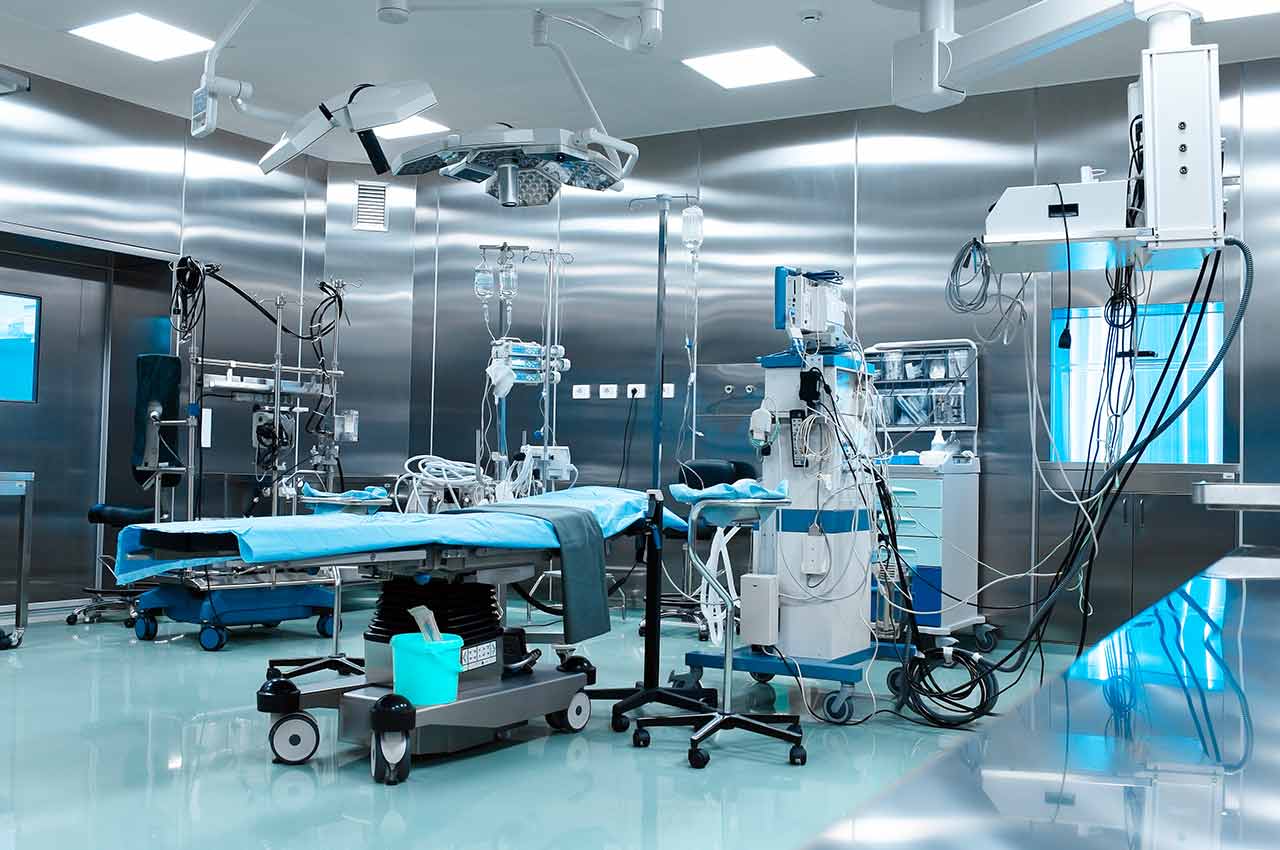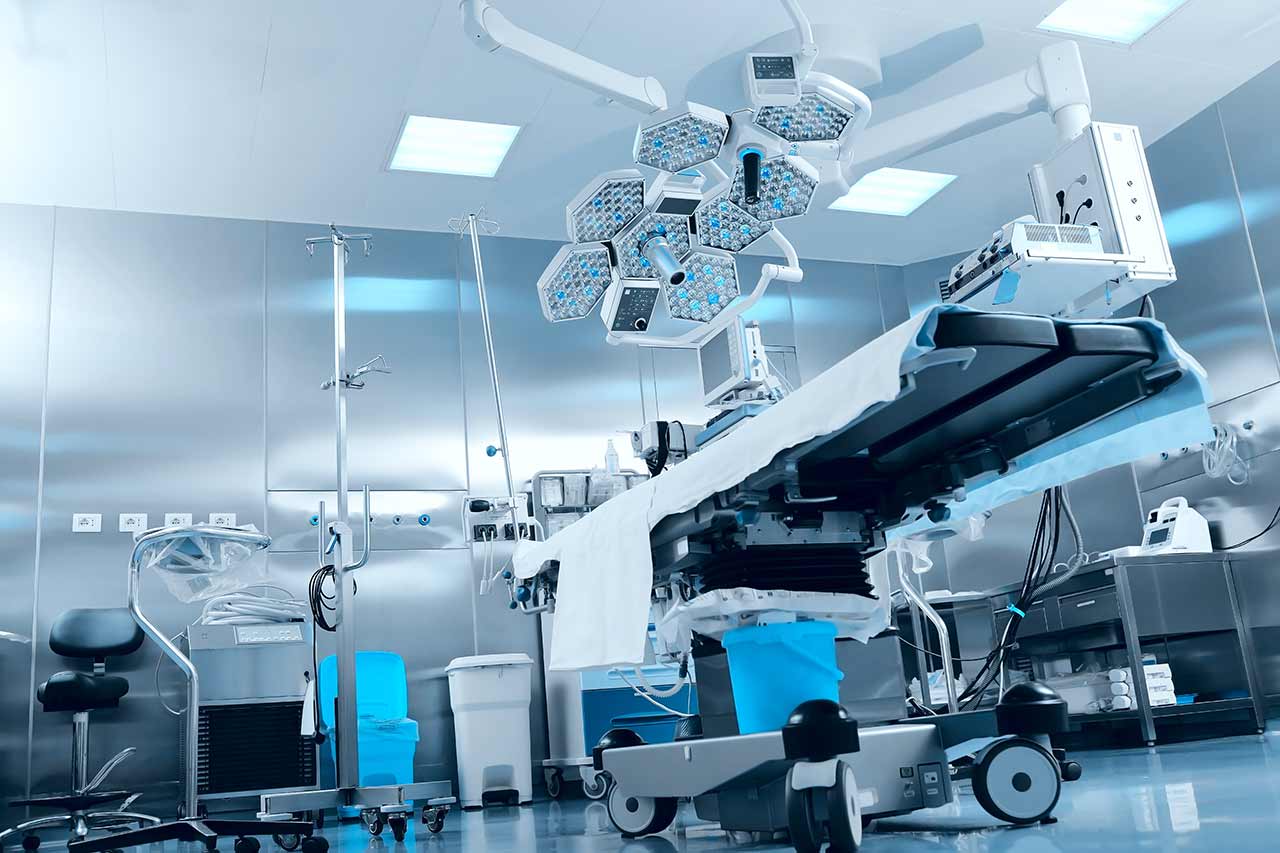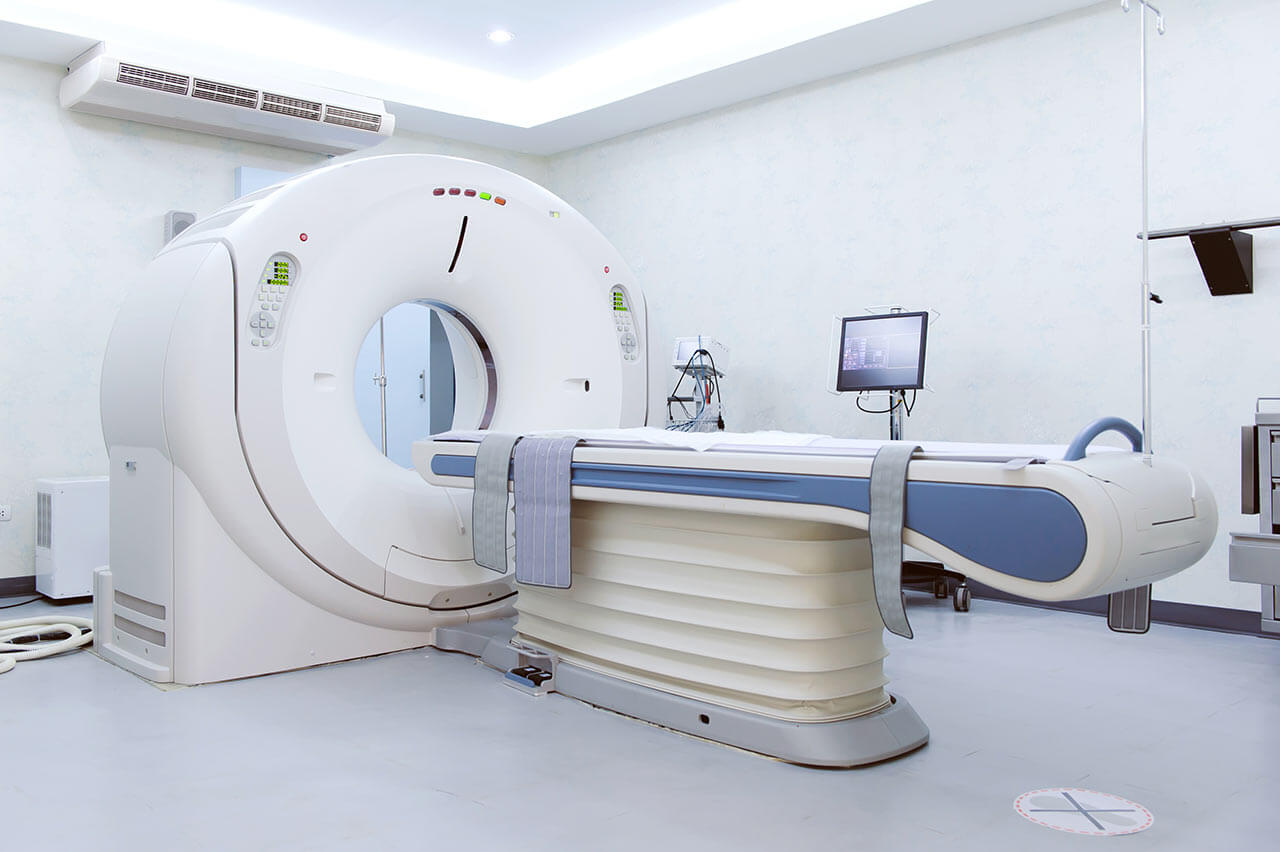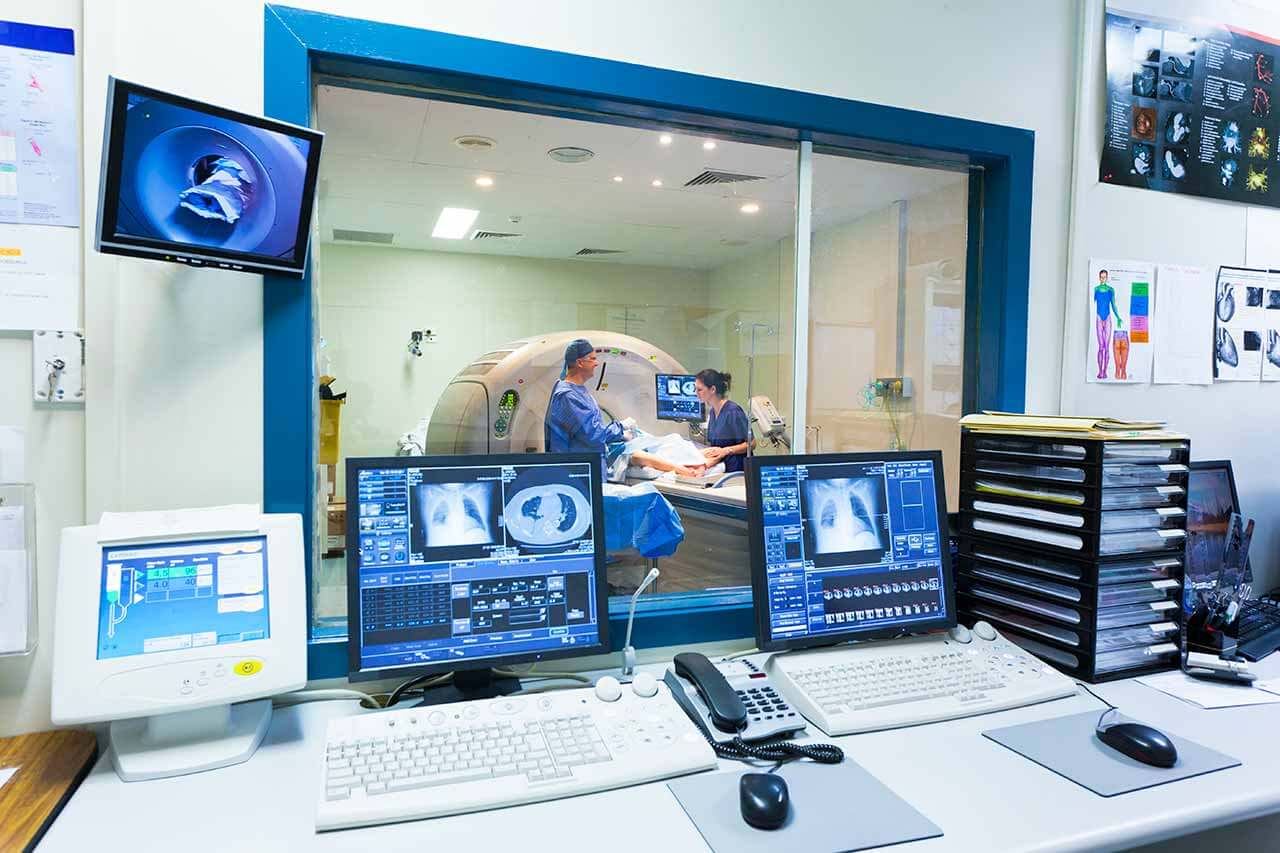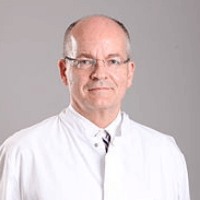
The program includes:
- Initial presentation in the clinic
- clinical history taking
- review of medical records
- physical examination
- abdominal ultrasound
- CT/MRI abdomen
- preoperative care
- ablation of tumor nodules
- symptomatic treatment
- cost of essential medicines
- nursing services
- stay in the hospital with full board (up to 5 days)
- full hospital accommodation
- elaboration further recommendations
Required documents
- Medical records
- MRI/CT scan (not older than 3 months)
- Biopsy results (if available)
Service
You may also book:
 BookingHealth Price from:
BookingHealth Price from:
About the department
The Department of Adult and Pediatric Diagnostic, Interventional Radiology at the University Hospital Frankfurt am Main provides the full range of services in these fields and specializes in conducting radiologic examinations, high-intensity focused ultrasound (HIFU) therapy, vascular, oncological, orthopedic and urologic interventions. The department includes specialized Sections for Gynecologic, Pediatric and Orthopedic Radiology. The Chief Physician of the department is Prof. Dr. med. Thomas Vogl.
In the field of diagnostics, the department offers the whole spectrum of modern diagnostic radiology, including CT and MRI diagnostics, X-ray diagnostics and ultrasound. To provide the fastest and most accurate diagnostics, the department has in its arsenal the very latest medical developments, for example, (128-slice) SOMATOM Definition AS scanner, SOMATOM Force Dual Source scanner, Siemens Somatom Definition AS Sliding mobile tomograph. These tomographs allow obtaining images of the highest quality with minimal radiation exposure to the patient.
In the field of interventional radiology, the department specializes in vascular, oncological, orthopedic interventions, as well as in prostate biopsy with an accuracy the nearest millimeter.
The department offers the full range of cancer interventions:
| Laser-induced thermotherapy (LITT), which is a special minimally invasive thermotherapy for liver and lung tumors |
| Uterine fibroid embolization, which is a minimally invasive therapy for uterine myoma |
| Radiofrequency tumor ablation, which is a minimally invasive high-frequency thermoablation for liver and lung tumors |
| Selective internal radiation therapy with the use of SIR spheres, which is a minimally invasive radio-oncological treatment of liver tumors |
| Transpulmonary chemoembolization (TPCE), which is a minimally invasive and selective chemotherapy for lung tumors |
| Transarterial chemoperfusion (TACP), which is a minimally invasive percutaneous chemoperfusion for liver tumors |
| Prostate embolization in benign prostatic hyperplasia, which is a special minimally invasive therapy for benign prostatic hyperplasia |
| Other interventions |
In addition, the department offers a wide range of minimally invasive vascular interventions. For example, excimer laser (ELA) angioplasty is successfully used in the treatment of peripheral arterial occlusive disease. It shows high rates of treatment effectiveness.
Also, the department offers special orthopedic interventions to treat herniated discs, osteoporosis and bone tumors. It uses a new minimally invasive method of treating herniated discs – ozone therapy. Its advantages include improving blood circulation and reducing inflammation, improving microcirculation and oxygen supply, etc. Another effective method is vertebroplasty/osteoplasty, which is used to reduce pain and stabilize the fractured vertebrae.
Another focus of the department is high-intensity focused ultrasound (HIFU) therapy. The department has one of the very first HIFU devices in Germany, which allows not only for tumor treatment, but also for its imaging. Focused ultrasound can be successfully used in the treatment of various benign and malignant tumors.
Indications for high intensity-focused ultrasound (HIFU) therapy:
| Pancreatic tumors |
| Liver tumors |
| Kidney tumors |
| Breast fibroadenomas |
| Bone tumors |
| Uterine fibroids |
| Adenomyosis |
| Breast cancer |
The main diagnostic and therapeutic focuses of the department are:
| High-intensity focused ultrasound (HIFU) therapy |
|
| Diagnostic radiology |
|
| Pediatric radiology (conventional X-ray studies, ultrasound, MRI) | |
| Interventional radiology |
|
| Cancer treatment | |
| Interdisciplinary Center for Liver Diseases | |
| Other diagnostic and therapeutic options |
Curriculum vitae
- 1976 - 1982 Study of Medicine at Ludwig Maximilian University of Munich.
- 1980 Training at the Higher School of Medicine of the Hebrew University, Hadassah Hospital, Jerusalem.
- 1980 - 1981 Assistant in the Department of Anatomy at the University of Munich.
- 1982 Admission to medical practice.
- Since 1983, Assistant Physician in the Department of Radiology, University of Munich.
Professional Experience
- 1988 Internship at the Massachusetts General Hospital in Boston.
- 1988 - 1990 Additional qualification in Nuclear Medicine.
- 1989 Certified Radiologist specializing in Radiation Therapy.
- 1990 Senior Physician of the Department of Radiology, University of Munich. Focuses: conventional X-ray diagnostics, ultrasound, CT, interventional radiology, establishment and management of the Department of MRI Diagnostics and Spectroscopy.
- 1992 Specialized in Nuclear Medicine.
- 1992 Specialized in In-Vitro Nuclear Diagnostics.
- 1992 Appointment to the post of the Managing Senior Physician of the Department of Radiation Therapy at the Free University in Berlin, University Hospital Virchow.
- 1992 (C3) University Professor at the Free University of Berlin, General Radiology.
- Certified Neuroradiologist.
- 1998 Invitation to hold a post of (C4) Professor in X-ray diagnostics, Frankfurt University.
- 1998 Invitation accepted.
- Since 1998, Chief Physician of the Department of Adult and Pediatric Diagnostic, Interventional Radiology at the University Hospital Frankfurt am Main.
- 2005 Collaboration with the Friedrichsheim Orthopedic Clinic of the University of Frankfurt: Head of the Department of Radiology.
Main Clinical Focuses
- Conventional X-ray diagnostics.
- Traumatology.
- Gastrointestinal radiology.
- Interventional radiology.
- Chemoembolization.
- Angioplasty.
- MRI diagnostics.
Main Research Focuses
- MR-angiography.
- In-vitro spectroscopy.
- Development of contrast agents.
- Interstitial laser therapy.
- Hepatobiliary diagnostics.
Photo of the doctor: (c) Universitätsklinikum Frankfurt
About hospital
According to the reputable Focus magazine, the University Hospital Frankfurt am Main ranks among the top German medical facilities!
The hospital was founded in 1914 and today is a well-known German medical facility, which combines rich traditions and scientific innovations. A medical team of more than 6,500 employees cares about the health of patients around the clock, ensuring them with the highest standards of medical care and best possible safety.
The hospital has 32 specialized departments and more than 20 research institutes, which have all the necessary resources for the provision of the most effective care for any patient. The hospital has 1,488 beds for inpatient medical care. The medical facility diagnoses and treats more than 51,000 inpatients and about 44,800 outpatients every year. Due to the demonstration of outstanding treatment results, the number of patients seeking medical care here increases significantly annually.
The hospital presents all areas of modern medicine, whereas its special competence lies in neuroscience, oncology, cardiovascular medicine, cardiac surgery and other fields. Many treatment methods available here are unique not only in Europe, but also internationally.
Photo: (c) depositphotos
Accommodation in hospital
Patients rooms
The patients of the University Hospital Frankfurt am Main live in comfortable rooms made in modern design and meeting the highest standards of European medicine. Each room is equipped with an ensuite bathroom with a toilet and a shower. The standard room includes a comfortable, automatically adjustable bed, a bedside table, a wardrobe, a table and chairs for receiving visitors and a TV. If desired, patients can use Wi-Fi. The patients can also stay in the enhanced-comfort rooms.
Meals and Menus
The patient and his accompanying person have a daily choice of three menus. If for any reason you do not eat all the food, you will be offered an individual menu. Please inform the medical staff about your dietary preferences prior to the treatment.
Further details
Standard rooms include:
Religion
Religious services are available upon request.
Accompanying person
During the inpatient program, an accompanying person may stay with you in a patient room or in a hotel of your choice.
Hotel
During the outpatient program, you may stay in a hotel of your choice. Managers will help you choose the most suitable options.
